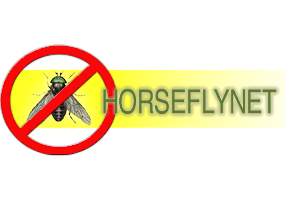Kentucky Equine Research tells us that when horses are eating hay they produce saliva. This causes more intake of water. If this fluid in the gut is prior to the feeding of grain than the grain will pass through the stomach rapidly and into the gut. Fermentation of grain in the hind gut can lead to such problems as colic. Therefore if hay is offered several hours after grain [...]
Scratches, mud fever, pastern dermatitis on pink pigment What do you call it in your part of the country? It is also called dew poisoning, grease heel or greasy heel. But it is the same condition which is caused by a mixture of bacteria and in some cases fungal organisms. The eastern US has had an unusually wet summer giving this disease the conditions to thrive on the [...]
Lawsuit Filed to Stop Sale of Wild Horses at Slaughter Auction on Saturday Posted on August 16, 2013 at 12:16 PM on www.wildhorsepreservation.org Wild Horse & Conservation Groups Allege Feds Failed to Protect Wild Horses in Tribal Roundup; 467 Horses Await Fate at Slaughter Auction "Reno, Nevada (August 16, 2013) . . . A coalition of wild horse advocacy and [...]
Botulism Beware By Jess Hallas-Kilcoyne Commonly found in soil, decaying animal carcasses, and, sometimes, decaying plant material, Clostridium botulinum is the bacterium responsible for producing the toxins that cause botulism. These powerful toxins prevent the release of neurotransmitters that [...]
ARE THE WILD HORSES A HERITAGE It is an interesting question. Should the wild horses be declared a heritage specie as opposed to an invasive specie? It was originally thought that perhaps they were brought by settlers or armies. But if they are reintroduced native then they can be considered to be heritage species and should not be slaughtered. This is the premise of the Canadian [...]
"Screens for barns," a word that most people are telling Horse Fly Net they use when doing a Google search for their stable or run-in-sheds. Why not? Screening is the same technique we use to protect our own homes from the multitude of flying insects which follow the light at night and enter our homes. But, Horse Fly Nets are more than just a barrier against the aggravation of flying insects. [...]
Sweet Itch photo from Lingfield Equine Vets "Sweet itch in horses, ponies and donkeys is an allergic response to the saliva in the bite of the Culicoides midge (gnat, no-see-um, punky) and to a lesser degree the black fly(Simulium Equinum), horn fly and stable fly which gives rise to intense itching" says Stephen Ashdown. Gnat Recently, one of our customers [...]
An unknown author once said, and I am quoting, "One can get in a car and see what man has made. One must get on a horse to see what God has made."
Storing Manure unattended manure buildup Manure is something we horse owners all have to deal with. Where do we put it? Can we repurpose it? How? Simply dumping all the manure into a giant pile creates an ideal breeding ground for flies and other insects and can also conceal intestinal parasites. After a rainfall, as surface water leaves the manure pile, it picks up nutrients and [...]
Stables and Flies written in 1917 Cover Manure Piles. " The object of this article is to call attention to two important phases of a fly prevention campaign, to wit: a campaign against fly food in other words, a campaign for clean houses and premises; and a campaign against fly breeding places-in other words, a campaign against bad stable conditions. Drs. Porter and Byrd of Florida[...]
Call Us at (910) 725-2115 or Email Us at info@horseflynet.com
Horse Fly Net
This see-through breathable screen will last for years. It is made of polyester vinyl coated and heat sealed on the edges with brass grommets about every foot. It has no chemicals added. Our HorseFlyNets only cost approximately $2.00 a square foot for smaller sizes and less for larger. Our product is woven and manufactured in the USA.
HorseFlyNet®
Southern Pines, NC
(910) 725-2115
info@horseflynet.com
